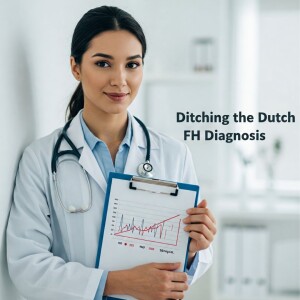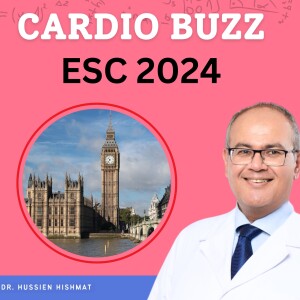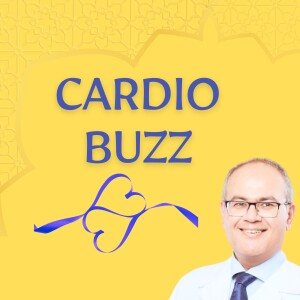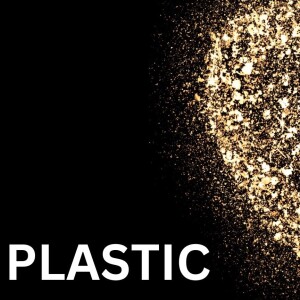Episodes

Sunday Mar 30, 2025
Sunday Mar 30, 2025
Is low blood pressure hindering your heart failure treatment? How do you balance life-saving medications with hypotension? We explore the definitions, causes, and practical solutions to optimize patient care. Learn how to navigate ARNI, beta-blockers, SGLT2 inhibitors, and MRAs effectively.

Friday Mar 07, 2025
Friday Mar 07, 2025
In this episode of Cardio Buzz, we explore the intriguing concept of the 'legacy effect' of medications like those used in treating diabetes, hypertension, hypercholesterolemia, and chronic kidney disease. We'll delve into landmark studies like the UKPDS, Steno-2, and more, examining the lasting impacts of medications such as Repatha, Candesartan, and Empagliflozin. Learn how these drugs contribute to disease regression, modify genes, and prevent non-fatal events to grant long-term protective effects.
00:00 Introduction: The Challenge of Lifelong Medication 00:57 Exploring the Legacy Effect of Medications
01:33 Diabetes Medications: Long-Term Benefits
03:15 Hypertension Medications: Persistent Effects
03:58 Cholesterol Medications: Lasting Impact
04:49 Kidney Disease Medications: Prolonged Benefits
06:12 Understanding the Legacy Effect Mechanism
09:13 Implications and Final Thoughts

Thursday Feb 27, 2025
Thursday Feb 27, 2025
"This week, we delve into the complexities of Familial Hypercholesterolemia (FH) diagnosis and challenge the conventional Dutch Lipid Clinic Network Score. 🩺 Our analysis of a recent Austrian study reveals significant limitations in the score's practical application, including inconsistent scoring and poor record completion. 📝
Key findings:
📊 A single off-treatment LDL cholesterol level of 190 mg/dL demonstrates comparable, and potentially superior, performance to the complex Dutch Lipid Score in identifying individuals with genetically confirmed FH.
✅ This simplified approach offers enhanced index case identification and facilitates timely referrals for genetic testing.
💡 We explore how a simpler, LDL-focused strategy could change clinical practice.
This episode is crucial for cardiologists and lipid specialists seeking to streamline FH screening and improve patient outcomes. 🎧 Tune in to learn more! We also discuss the need for further studies to validate this approach and assess its impact on diagnosis rates and cardiovascular outcomes. 🔬
Listen now to 'Ditching the Dutch: FH Diagnosis made easy' and join the conversation on the future of FH screening. #Cardiology #FH #Lipidology #MedicalResearch #ClinicalPractice #Diagnosis 🗣️"

Wednesday Sep 04, 2024
Wednesday Sep 04, 2024
Join us in this episode of Cardio Buzz as we bring you the latest updates from the European Society of Cardiology conference held in London. Discover groundbreaking clinical trials and new guidelines that promise to reshape the practice of cardiology. We will break down the ten most impactful clinical trials and four new guidelines on hypertension, chronic coronary disease, atrial fibrillation, and peripheral/aortic diseases. Stay ahead in your field with our concise and insightful analysis. Subscribe, like, and hit the notification bell to stay informed on all cardiology advancements.
00:00 Introduction to the European Society of Cardiology Conference
00:59 Top 10 Late-Breaking Clinical Trials
04:41 New Guidelines Overview
05:38 Hypertension Guidelines
09:30 Chronic Coronary Artery Disease Guidelines
15:08 Peripheral Arterial and Aortic Disease Guidelines
20:33 Atrial Fibrillation Guidelines
23:58 Conclusion and Next Steps

Saturday Aug 17, 2024
Saturday Aug 17, 2024
In this episode of Cardio Buzz, the discussion focuses on the potential of stem cell therapy to transform cardiology. Host Dr. Hussain interviews Dr. Yahya Kiwan, an experienced cardiologist and stem cell research advocate. They explore the application of stem cells in treating advanced heart conditions, including post-myocardial infarction and chronic heart failure. The episode covers the sources of stem cells, their harvesting and injection techniques, clinical trial results, and success stories. Dr. Kiwan addresses the ethical considerations and the future of regenerative medicine, emphasizing the need for greater awareness and education in the field. The episode concludes with information on upcoming educational opportunities and fellowships in regenerative cardiology.
00:48 The Promise of Stem Cells in Cardiology
01:31 Interview with Dr. Yahya Kiwan
04:13 Sources and Types of Stem Cells
05:55 Stem Cell Therapy Techniques
10:45 Current Applications and Success Stories
17:18 Future Perspectives and Ethical Considerations
19:38 Learning More About Regenerative Medicine
21:20 Conclusion and Next Steps

Saturday Jun 08, 2024
Saturday Jun 08, 2024
In this episode of CardioBuzz, host Dr. Hussien discusses advanced CPR techniques and challenges from a cardiologist's perspective, featuring Dr. Naeem Toosy, a consultant in emergency medicine. The conversation delves into critical aspects like when to stop resuscitation, use of mechanical circulatory support devices, and the effectiveness of mechanical chest compression devices. Dr. Tusi outlines the significance of early recognition, the role of the public in initiating CPR, and the potential benefits of ECMO during CPR. He underscores the need for national-level education on CPR and the importance of the Good Samaritan law in encouraging public intervention during cardiac arrests.
00:00 Introduction to CardioBuzz
00:08 Overview of CPR Challenges
00:33 Introducing Dr. Naeem Toosy
01:36 Importance of Brain Resuscitation
03:11 When to Stop Resuscitation
06:20 Mechanical Chest Compression Devices
07:49 ECMO in CPR
13:04 National Strategies to Reduce Cardiovascular Mortality
18:04 Conclusion and Final Thoughts

Sunday May 26, 2024
Sunday May 26, 2024
In this episode of Cardio Buzz, host and guest Dr. Daniel Jones discuss contrast nephropathy, a kidney injury caused by contrast agents used in medical imaging, and a promising intervention to reduce its incidence. Dr. Jones explains that inorganic nitrates, which are naturally found in green leafy vegetables, have shown significant potential in preventing contrast-induced nephropathy and associated acute kidney injuries in a recent study. This study involved 640 high-risk patients and demonstrated that inorganic nitrates reduced kidney injuries by 60% and improved long-term cardiovascular outcomes. The episode concludes with a conversation about the practical implications and future research plans for this intervention.

Saturday Apr 20, 2024

Saturday Apr 20, 2024
Saturday Apr 20, 2024
Microplastics are small pieces of plastic less than five millimeters in size that result from the degradation of larger plastic items. Derived from synthetic materials such as polyethylene and polyvinyl chloride, plastics are known for their durability and low cost but pose significant environmental and health risks due to their inability to biodegrade. Microplastics, including even smaller nanoplastics, are found everywhere - in our food, water, air, and even within the human body, where they can be ingested, inhaled, or absorbed through the skin. Italian researchers published their work in March 2024, found microplastics in the atherosclerotic plaques of patients with carotid artery stenosis. This presence of micro and nanoplastics was associated with higher levels of inflammation and an increased risk of heart attacks and strokes. While this finding indicates a correlation rather than causation, it raises concerns about the potential health impacts of microplastics. We provide practical advice on minimizing exposure to microplastics, such as avoiding single-use plastics, choosing products with minimal or no plastic packaging, and opting for natural fibers over synthetic ones.
00:00 Introduction to Plastics: Types and Properties
00:26 The Environmental and Health Impact of Microplastics
01:39 Investigating Microplastics in Human Arteries: A Groundbreaking Study
02:25 Study Findings: Microplastics in Atherosclerotic Plaques
03:12 Implications of the Study: Association vs. Causation
03:44 Practical Steps to Minimize Microplastic Exposure
04:47 Conclusion: The Challenge of Avoiding Microplastics

Sunday Oct 15, 2023









